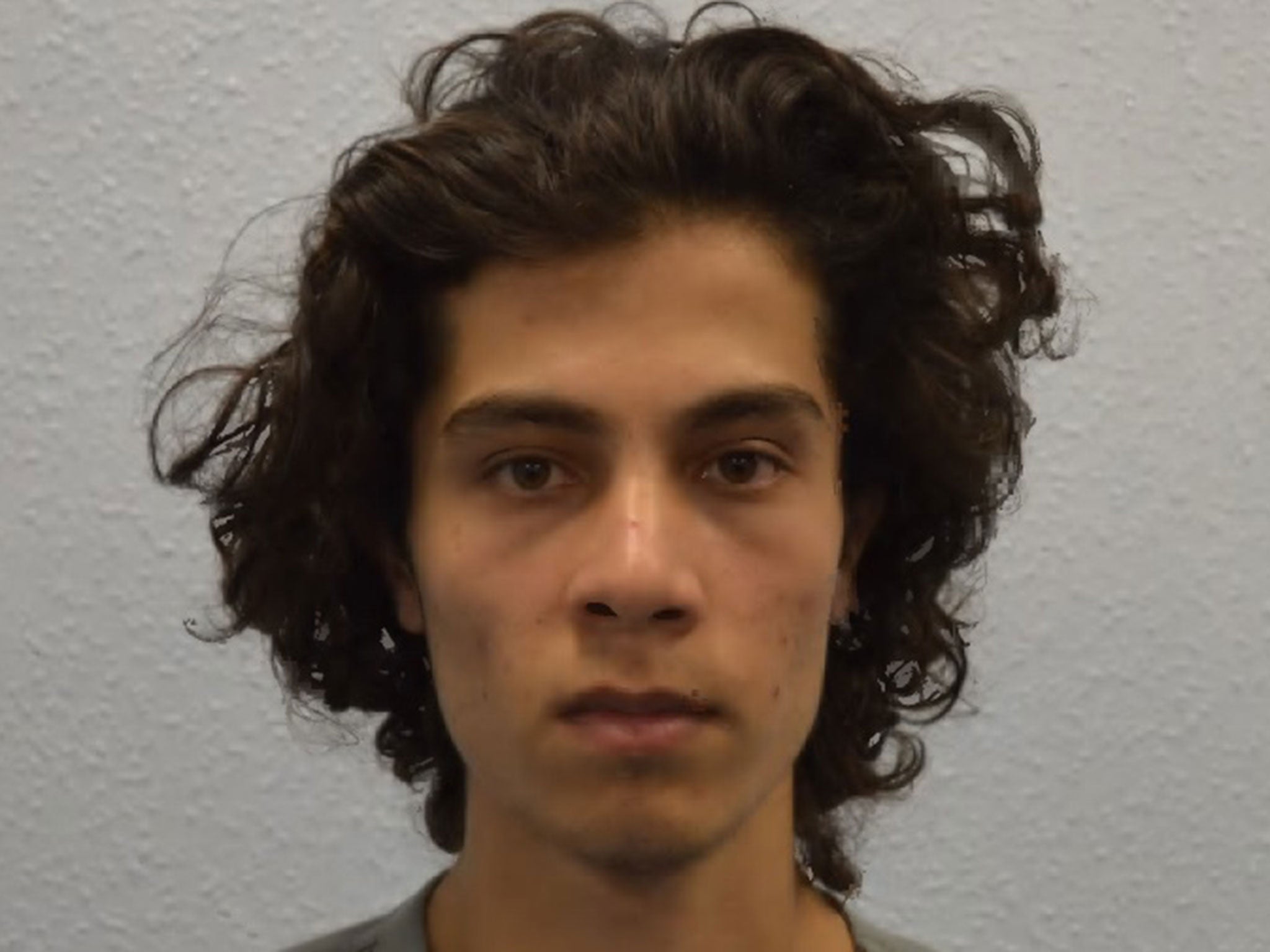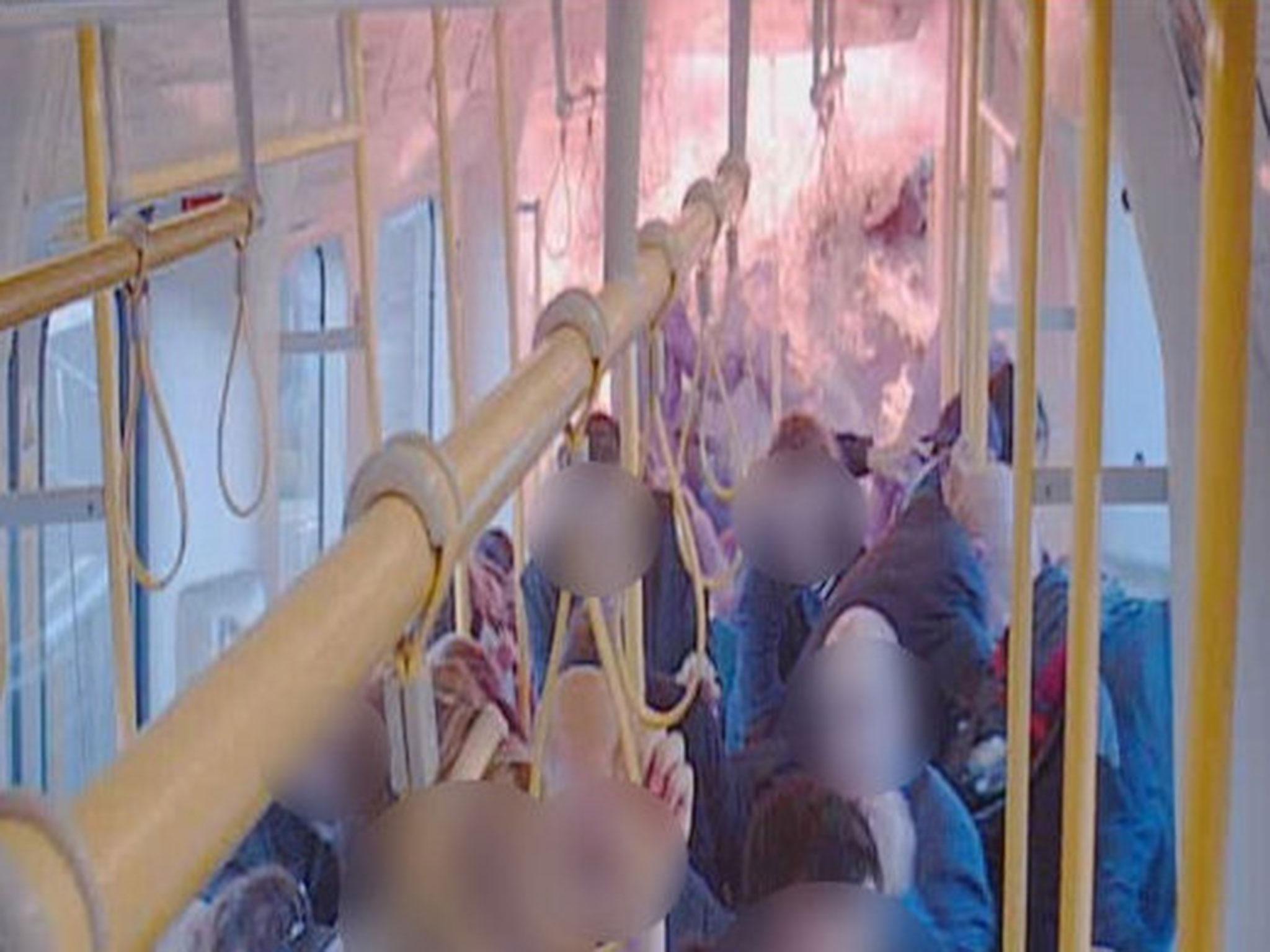Parsons Green bomber Ahmed Hassan jailed for life with minimum term of 34 years for terror attack
'You have violated the Quran and Islam with your actions,' judge tells terrorist
The Parsons Green bomber was told he had “violated Islam” as he was jailed for life for launching a terror attack on the London Underground.
Handing Ahmed Hassan a minimum term of 34 years imprisonment, a judge said failed to cause the “death and carnage” he desired when his device malfunctioned but remains a danger to the public.
“You have violated the Quran and Islam with your actions, as well as the law of all civilised people,” he told the teenager. “It is to be hoped that you will come to realise this one day.”
Mr Justice Haddon-Cave said the Quran was a “book of peace” and noted its teachings forbidding terrorism and crime, adding: “You will have plenty of time to study the Quran in prison in the years to come.”
Hassan did not react has he was sentenced and stayed silent in the dock, as his victims and their loved ones looked on from the public gallery.
The Independent understands the Government will seek to deport him to Iraq “at the earliest possible opportunity” after his jail sentence is completed.
Mr Justice Haddon-Cave told the Old Bailey he had been driven by a “mindset of Isis extremism”, a deep-seated hatred of Britain and a desire for revenge over the death of his father during the Iraq War and continued bombing of his home country.
The court heard Hassan, now aged between 18 and 21, lied about his age when he arrived in the UK on the back of a lorry from Calais in order to gain the “special privileges” afforded to child asylum seekers.

He originally told immigration officials he had been forced to train as a child soldier at an Isis camp in his home country, but fled when the region was retaken by Iraqi government forces.
During an interview in January 2016, Hassan told officials he had been “trained to kill” by the terrorist group and indoctrinated in “what Allah believed was right”.
But while giving evidence in the dock he claimed it was a made-up story to help him gain asylum.
Mr Justice Haddon-Cave ruled that Hassan’s original account was true, saying that he had told other people of his experiences with Isis.
“You were the subject of indoctrination and incubation by Isis but you are – as you were at pains to tell the jury – a highly intelligent young man, and you chose to give vent to your mindset and hatred, notwithstanding you were shown every kindness from the moment you arrived in this country,” he added.
Hassan had also been caught watching an Isis video and listening to nasheeds (Islamic songs) that were subsequently identified by The Independent as official Isis propaganda, while a teacher saw a message on his phone reading: “IS has accepted your donation.”
“Following your arrival in the United Kingdom in 2015, you were content to lead a double life,” the judge told Hassan. “You presented as a very polite, well-behaved and exceptionally bright model student, grateful for the opportunities that were being given to you.
“You cynically exploited to the full the generosity and naivety of the system and those looking after and helping you. Meanwhile, you harboured dark thoughts.”
They lay dormant until he started planning his attack in August 2017, the court heard, using a voucher awarded for being named “student of the year” to buy bomb-making materials from Amazon.
Hassan presented to mental health services with depression and PTSD before the attack, spending time in hospital, but the court heard there was no evidence of a mental illness or disability that provided any mitigation.
He had quietly planned and executed the attack with “ruthless determination and almost military efficiency”, the court heard, whilst pretending to be a “model asylum seeker”.
Mr Justice Haddon-Cave said Hassan “wanted to save his skin” by setting the device to explode on a timer after he got off the District Line on 15 September.
“It is sheer luck that the main charge did not fully detonate,” he added, saying the failure was due to accident rather than design.
“It is inevitable that there would have been numerous fatalities and serious casualties.”
The bomb, containing 400g of the “mother of Satan” explosive TATP surrounded by metal shrapnel, was contained in a Lidl bag and covered with a pair of trousers to make it less conspicuous.
Hassan placed it amid commuters and set a timer for two minutes, getting off the train a stop before Parsons Green and making a “conscious effort to behave casually and blend in”.
Around 93 people were in the packed carriage when it detonated, sending a fireball hurtling through commuters that injured 23 passengers before another 28 were hurt in the crush to escape.
Victims told the court of their pain, suffering horrific burns, with one woman’s scars expected to take up to two years to heal.
In a statement read to the court by the prosecution, Lucinda Glazebrook said she now suffers from PTSD and flashbacks, regularly reliving the explosion and seeing Hassan’s face.
“I believed I was going to die,” she added. “I view myself as a changed person.”

Commuter Stephen Nash said he had to give up his job as a social worker due to his fear of getting on the Tube, and cannot travel into London or be among crowds.
Ann Stuart said: “I haven’t slept properly since it happened, I wake most mornings shaking and have the most frightful nightmares”. She feels “on edge” and constantly tearful, and has been able to return to work because of the psychological impact of the attack.
The judge paid tribute to the victims for giving evidence through their “severe distress”.
“It must have come as a great disappointment to you to see that the IED which you had so carefully created had failed to operate correctly and the carnage which you had hoped to create had not occurred,” he told Hassan.
“You wanted to save your own skin and were not prepared for shahada (martyrdom) … you planned to kill as many members of the British public as possible and then make your escape to the continent via Dover according to a prearranged plan.”
The teenager destroyed his phone memory card, wiped his laptop and changed clothes four times while travelling towards Kent to make his escape, but was recognised and arrested by police at the port.
Officers told how he started “shaking, praying and complaining” that his rucksack should not be placed on the ground because it contained a copy of the Quran.
Hassan then attempted to use others to cover his tracks, having chemicals delivered to a friend’s house and falsely telling police he was meeting another refugee who was fostered by the same couple.
The lie caused the innocent man to be arrested and receive huge media attention, leaving him “nervous and scared all the time” and prescribed sleeping pills.
Police chiefs praised the “excellent work” of officers who identified Hassan as the bomber and tracked him down in less than 24 hours.
Metropolitan Police Deputy Assistant Commissioner Dean Haydon said: “The speed at which the Counter Terrorism Command investigation team worked was outstanding and had it not been for the fantastic support given by colleagues from British Transport Police, Transport for London, Kent, Surrey and Port of Dover Police, then this result may not have been possible.”

